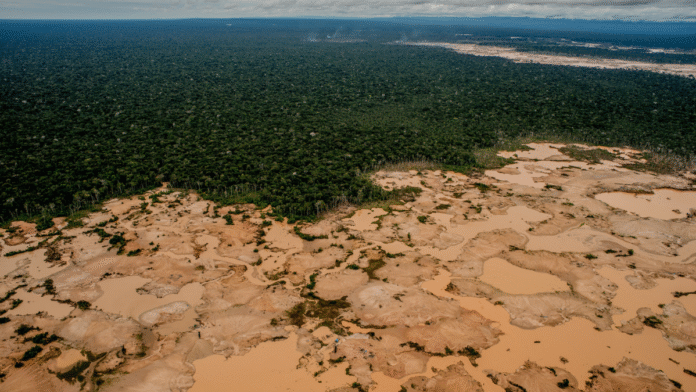The Andean Community has ordered Peru to take immediate action against illegal gold mining and mercury trafficking. The ruling comes from the Andean Community, which includes Peru, Colombia, Ecuador, and Bolivia. The decision states that Peru is not doing enough to stop activities that are damaging the Amazon rainforest and poisoning Indigenous communities.
The order demands Peru to change its environmental laws and take quick, visible steps to stop the spread of illegal mining. Authorities must seize equipment used to dig up riverbeds and stop extending registrations that allow informal miners to operate without strict oversight. The Andean Community has given Peru 20 working days to show what it is doing to meet these orders.
This ruling marks the first time the trade bloc has acted against one of its member countries over environmental and public health issues. Peruvian environmental lawyer César Ipenza described the ruling as a response to the demands of communities affected by mercury contamination and said it sends a message to other countries to respect the right to live in a healthy environment.
Rivers, Fish, and People Under Threat
Illegal gold mining has become one of the fastest-growing environmental threats in South America. Rising gold prices around the world have made mining in remote rainforest areas extremely profitable. However, this mining often happens without any safety or environmental controls.
Alejandro Toledo receives second prison term in Peru’s Odebrecht scandal
To separate gold from soil and sediment, miners use a chemical called mercury. Mercury helps gather tiny pieces of gold, but it is highly poisonous. When miners release mercury into rivers, it flows downstream and contaminates the water. Fish absorb it into their bodies, and people who eat those fish are exposed to mercury as well.
Communities living along the Amazon’s rivers are especially affected. In Peru’s northern Amazon, Indigenous groups from the Nanay River basin have reported that mercury levels in fish and in people’s hair samples are far above what health experts consider safe. Exposure to mercury can cause skin rashes, stomach problems, and serious brain or nerve damage, especially in children and pregnant women.
Locals have long asked for stronger government action. They say illegal mining continues because authorities rarely patrol the jungle areas where it happens. Corruption and weak law enforcement make it easier for illegal traders to move mercury across borders and for miners to sell gold that comes from protected lands.
Iran describes sanctions as a threat to global rules in letters to Sri Lanka and Maldives
Peru Faces Strict Deadlines and Possible Sanctions
According to the trade bloc’s ruling, Peru has 20 working days to report back with proof of new measures. These include reforms to its laws, seizures of mining machinery, and tighter control over mercury imports and sales. If the country fails to take serious steps, the case could be sent to the bloc’s Tribunal of Justice, which has the power to impose economic sanctions, such as extra tariffs or trade restrictions on Peruvian exports.
The decision follows years of frustration among Amazon communities who say government operations have been too limited. Peru has carried out some large anti-mining campaigns, including a major raid in 2019 known as “Operation Mercury” in the Madre de Dios region. That operation destroyed illegal camps and confiscated tons of mercury. Authorities also announced a record seizure of contraband mercury earlier this year at the port of Callao. Still, illegal mining continues to spread into new territories, with organized groups supplying miners and buying the gold they produce.
César Ipenza emphasized that the ruling is also a warning to countries that import gold, urging them to ensure they are not trading in gold that comes from illegal or environmentally destructive sources. Mercury used in Peru often crosses borders, and illegal gold is exported through neighboring countries before reaching international markets.
The Peruvian government has not yet released an official statement on the ruling. The trade bloc’s decision, however, puts significant pressure on Peru to show that it can take effective action against the ongoing environmental damage. It also signals that South American nations are becoming more willing to hold each other accountable for protecting shared natural resources.


